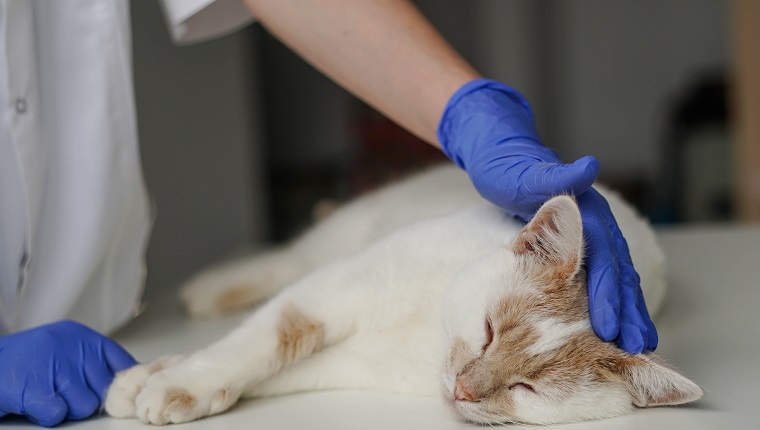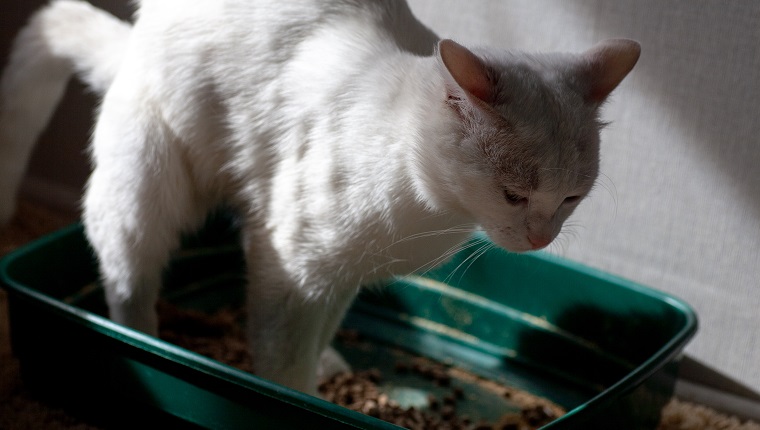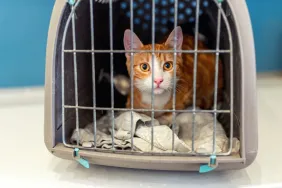Megacolon in cats is a medical condition that involves a cat’s colon becoming stretched and weakened.
As a result, cats can experience severe constipation and associated digestion issues and, in some cases, secondary symptoms including weight loss and dehydration.
If you see signs that your cat is developing digestion issues or concerning symptoms, then you must consult your veterinarian for a proper diagnosis and advice. Here’s what you should know about the symptoms, causes, and treatments of megacolon in cats.
Symptoms Of Megacolon In Cats
Megacolon in cats can produce a number of symptoms that usually affect the way a cat can or can’t defecate (poop). Some of the most common symptoms include:
- Severe constipation
- Passing very hard stools
- Not defecating as often as usual
- Loss of weight
- Loss of appetite
- Reluctance to exercise
- Dehydration
- Vomiting
Causes Of Megacolon In Cats

The cause of megacolon in cats can be one of a number of things and is generally related to constipation issues; although in some cases, the cause of megacolon is unknown, which vets refer to as idiopathic.
Some of the most frequent causes include:
- Spinal cord injuries
- Gastrointestinal diseases
- Loss of nerve function in the colon
- Dehydration
- Paralysis around the anal area
- Obstructions caused by hairballs, tumors and foreign objects
In general, the condition seems to affect older cats more than younger kitties. However, very young kittens seem to suffer more severe symptoms when affected by the condition.
Veterinary Treatments
If you notice that your cat is suffering from megacolon, then your veterinarian will want to carry out a full physical examination and order comprehensive blood tests. They’ll pay particular attention to examining the rectum, as well as the abdomen.
Additionally, vets often use a radiograph and other imaging techniques to more closely examine the state of the abdomen.
When it comes to treatment, the use of laxatives, enemas and switching to a high fiber diet are some of the initial suggestions that your vet might recommend to alleviate the condition.
In more severe cases, vets may need to manually excavate a cat’s colon, which is a process that generally involves anesthesia. In the most extreme cases, vets may also consider a surgical procedure to remove areas of the colon.
Has your cat developed megacolon? What kinds of symptoms did you see? Tell us all about it in the comments below.









